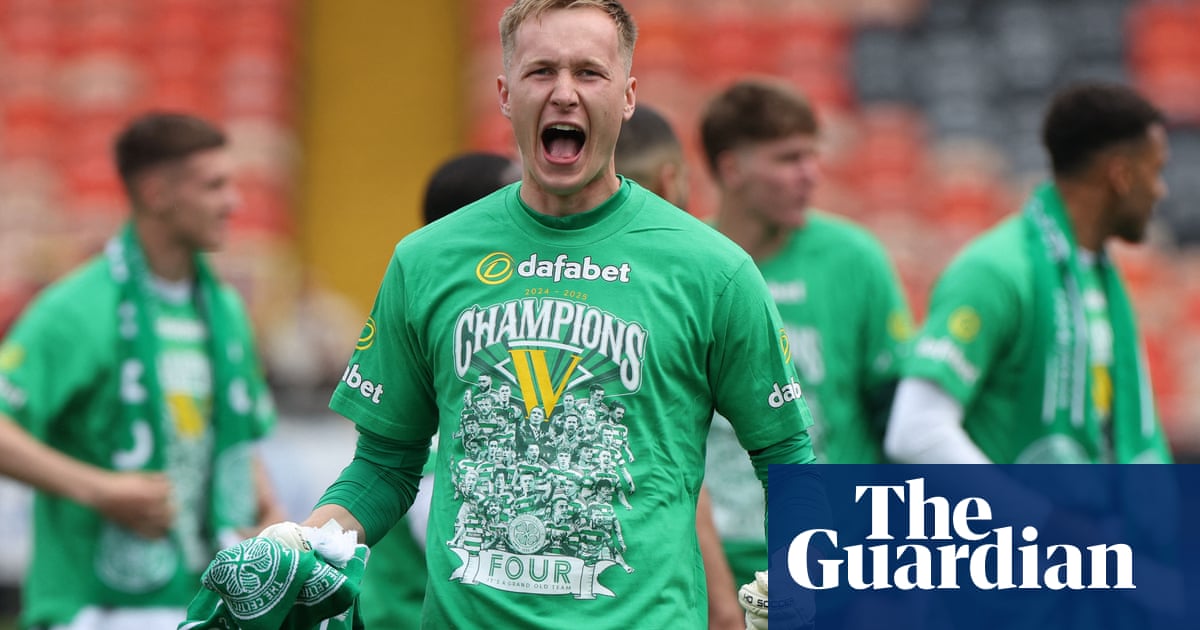Twelve months from now, Brendan Rodgers will either be preparing to bid farewell to Celtic for surely the final time or the manager will be embarking on phase two of this second tenure. Mystery around the more likely scenario means that what happens next to Celtic is far more intriguing than the comfortableretention of their Scottish title. Make that 13 in 14 years.
Rodgers will already know his future plan. So, too, will Dermot Desmond. There may be no official board role for Celtic’s principal shareholder and no public utterances on all thingsCeltic, but Rodgers has been sure to drop in that he deals directly with the Irish billionaire as opposed to, say, the club’s chair, Peter Lawwell. If this feels structurally odd, it is the kind of thing that is ignored while the team keeps winning.
In Rodgers, Celtic have as fine a manager as they will ever attract. He would not be at Celtic but for an affiliation to the club. This carries danger, however, given the 52-year-old’s broader reputation. He will always have career options. It would be understandable if he determines three years, for a total just short of six, is enough outside a top European league. Rodgers has ambitions abroad and a reputation in England to reboot after thepoor ending to his time at Leicester.
At Celtic, Rodgers has control and status not typically available elsewhere. Should he depart, the possibility of Ange Postecoglou being out of work cannot be ignored. Celtic and Desmond like managerial reunions. Speculation and theory upon theory will run until Rodgers’s plans are made plain. For now, there is celebration.
The only strange thing about Celtic’s latest Premiership title is that it took so long to become set in stone before Saturday’s 5-0 demolition of Dundee United. Rangers have won back-to-back league Old Firm derbies without ever looking like claiming the flag. Celtic have seen off another Rangers manager: since Steven Gerrard won the league in the Covid-affected season of 2020-21, three more permanent coaches have swung at Celtic and comprehensively missed. Rodgers will hold little fear over the arrival of number four.
This has been a season where Celtic’s progress in Europe was significant. Those who legitimately rail at the non-competitive nature of Scottish football – it is now 40 years since a non-Old Firm club won the top division – are faced with the Champions League as a strong counter-argument. Celtic showed spirit, skill, discipline and flair when progressing to the knockout phase.
Rodgers understandably relished the environment. The reference point in this season will be the terrific performances againstRB Leipzigand Bayern Munich, as opposed to the Tannadice moment Scotland’s Premiership was officially sealed.
Rodgers cut a far more agitated figure over domestic shortcomings that he could never really admit were barely relevant. Theloss at St Johnstone in Aprilwas a case in point. Rodgers has openly questioned whether certain members of his squad have the psychological capability to handle Celtic’s demands. He will want a mini-overhaul this summer, which is fine in principle but worthy of close attention given the lack of impact from individuals signed for not insignificant moneys in the last pre-season.
Scottish players would ordinarily be the answer to Celtic’s conundrum – Kieran Tierney is already returning – but there are not nearly enough of them in the necessary market. Celtic’s squad, crucially, contains umpteen assets. They can trade from a position of power, but they need more strength in depth. Daizen Maeda, this season’s star man, was a Postecoglou purchase.
The slight rogue element as far as Celtic are concerned is the imminent takeover of Rangers by American-based investors. Since David Murray’s period in charge at Ibrox, Rangers fans have been seduced by the idea of lavish spending. Not only is that unlikely now due to regulatory constraints but penny-pinching has not been Rangers’ recent issue. They have dished out plenty of money, badly.
The chasm that exists between the clubs is in large part due to Celtic’s smarter decision-making. They have made mistakes in player trading; it is simply that nobody notices them.
Rodgers was at pains on Friday to stipulate winning to Celtic’s domestic level is “not easy”. There is a certain mentality needed to meet this club’s demands week after week. Still, the basic reality is the most powerful force in Scotland on and off field have emerged at the top of the pile. They need not be wildly praised for that.
It is difficult not to glance forward towards what Celtic’s status will be when they, surely, retain their title once more in 2026. The professional thoughts of Rodgers will determine that.
